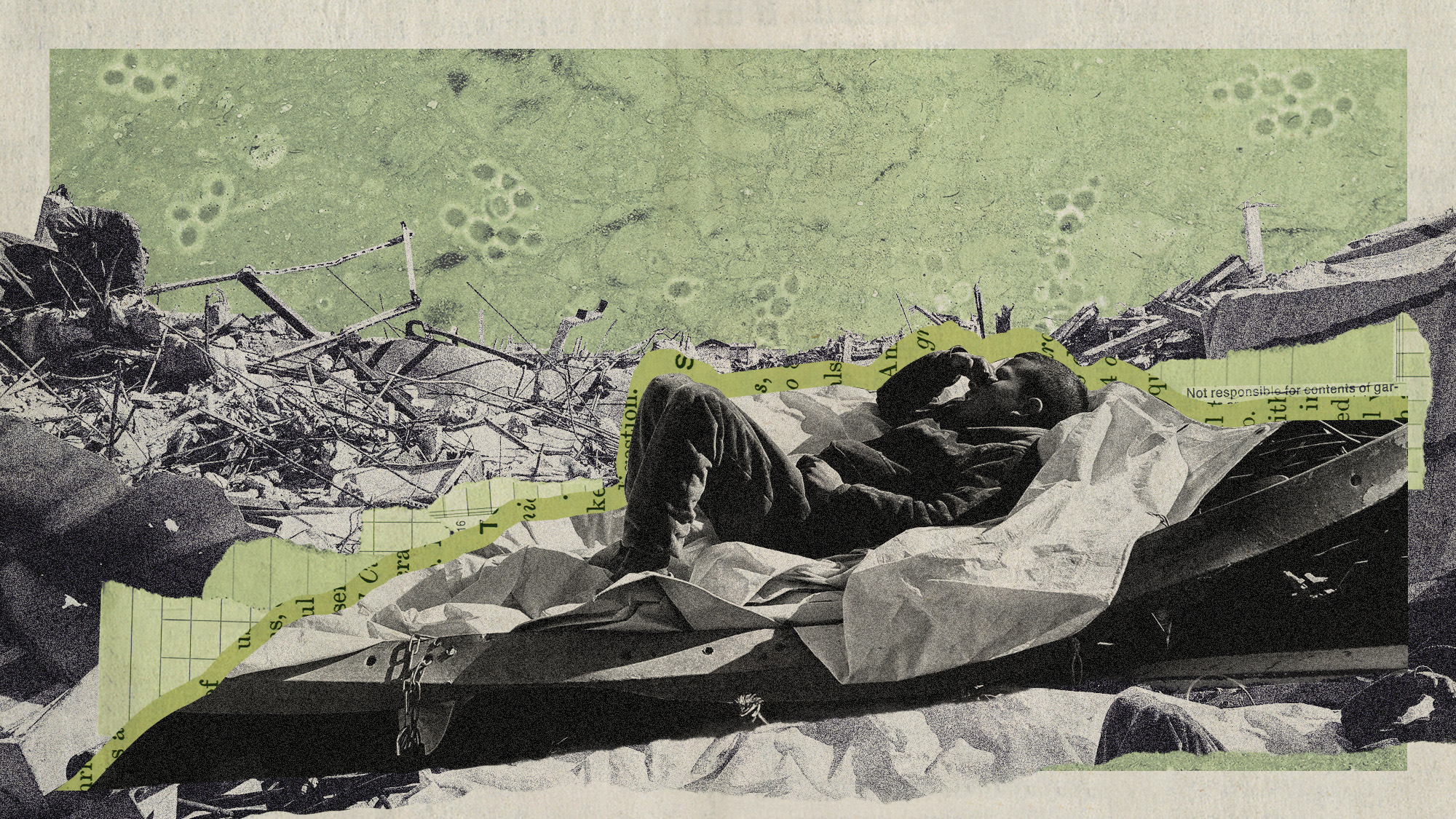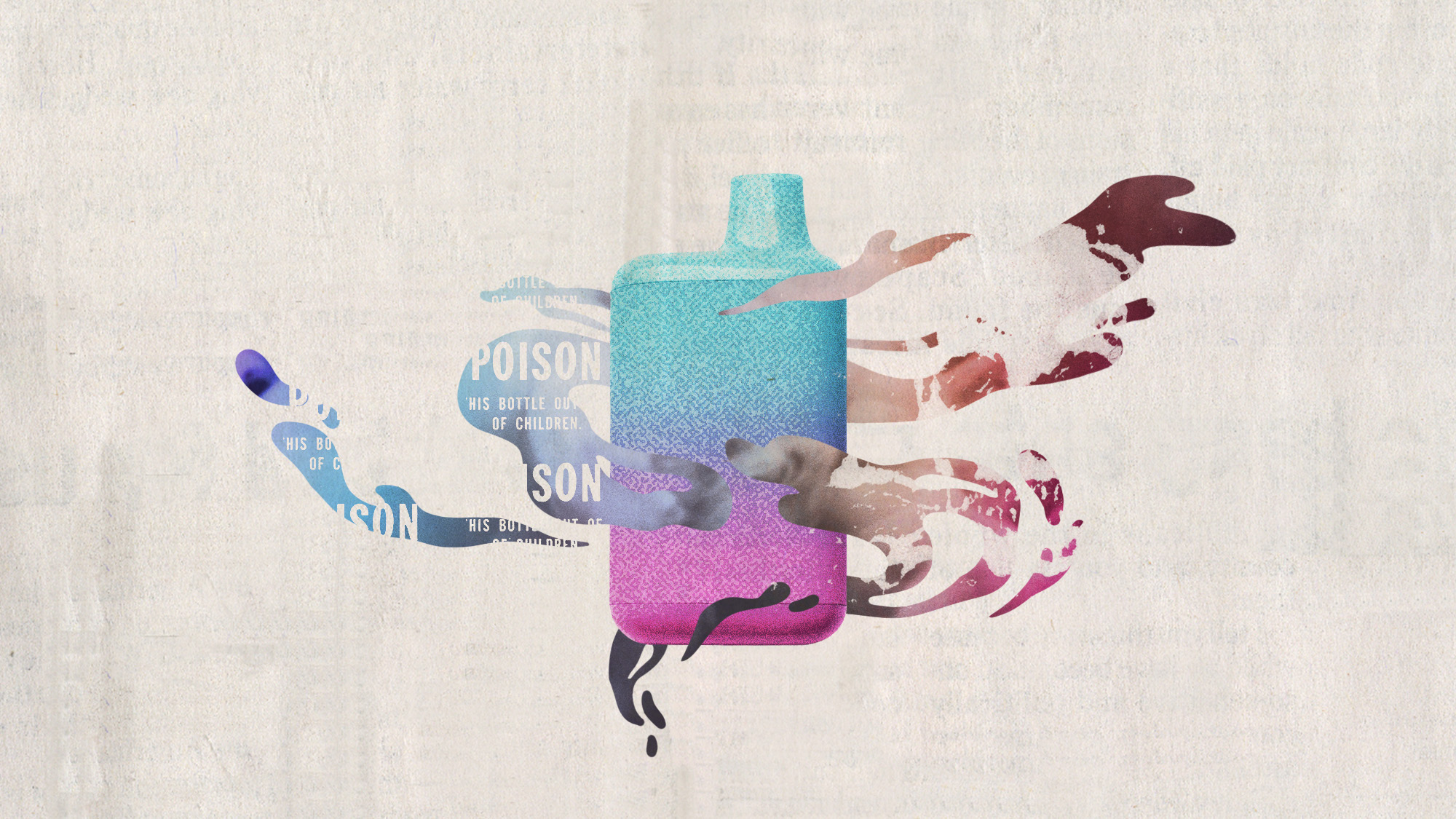Mountains of garbage are creating more hazards in Gaza
Gaza was already creating 1,700 tons of waste daily prior to the war


A free daily email with the biggest news stories of the day – and the best features from TheWeek.com
You are now subscribed
Your newsletter sign-up was successful
Following months of bitter conflict in Gaza, thousands of tons of garbage remain piled in the streets, creating an even greater ecological and health dilemma for those remaining in the territory. Even before the war broke out following Hamas' Oct. 7, 2023, attack on Israel, Gazans were faced with a lackluster garbage disposal system.
Despite its hurdles, this system was able to keep up, even as Gazans were generating an estimated 1,700 tons of daily waste before the war. But this is no longer the case, and mountains of garbage now threaten the stability of the entire region.
How much garbage is in Gaza?
The three main landfills that collected garbage in pre-war Gaza have been closed due to the conflict, which "forced local authorities to find temporary dumpsites," said Reuters. About 225 of these sites were operating in Gaza as of May 2024, according to the outlet.
The Week
Escape your echo chamber. Get the facts behind the news, plus analysis from multiple perspectives.

Sign up for The Week's Free Newsletters
From our morning news briefing to a weekly Good News Newsletter, get the best of The Week delivered directly to your inbox.
From our morning news briefing to a weekly Good News Newsletter, get the best of The Week delivered directly to your inbox.
However, more waste is being generated now than during pre-war times; there is an estimated 2,000 tons of garbage being created daily. In the first eight months of the war, over 364,000 tons of solid waste are "estimated to have built up in the Palestinian territory," said the BBC. And the ongoing conflict means that Gazans are struggling to remove this garbage, with "only 600 to 700 tons of waste collected daily," said Reuters.
Why is this such a big problem?
Gazans often become embedded within these temporary dumpsites. Many "Palestinians running out of areas to shelter say they've had little choice but to pitch tents near trash piles," said The Associated Press. One informal landfall was built after Oct. 7 in Khan Younis, and a "tent city has sprung up around the landfill, with Palestinians living between piles of garbage."
Conditions are particularly bad for those who fled the shelled city of Rafah; many "have been forced to live in open areas" that had already been turned into temporary refuse sites, said the BBC. The "smell is very disturbing. I keep my tent door open so that I can get some air, but there is no air," displaced Gazan Asmahan al-Masri said to the BBC.
Diseases are running rampant, and "doctors fear cholera may be on the horizon," said the AP. The "crowded conditions, the lack of water, the heat, the poor sanitation — these are the preconditions of cholera," Joanne Perry, a doctor with Doctors Without Borders, said to the AP. Most of her patients "have illnesses or infections caused by poor sanitation." Major outbreaks of polio have also been seen throughout Gaza, thought to be linked to the garbage.
A free daily email with the biggest news stories of the day – and the best features from TheWeek.com
This "waste here has brought diseases. Our children are suffering from various ailments that we have never seen before," Abou Mohammed, a Palestinian who lives near a major landfill, said to Reuters. And it may not just be Gaza that suffers: other areas in the surrounding Middle East, including Israel, could be at risk from these garbage piles.
The "health and sanitary situation in Gaza is dire, with dramatic and widespread ramifications," Nadav Davidovitch, a health systems management professor at Israel's Ben-Gurion University of the Negev, said to The Times of Israel. It is "evident that the health risks will not simply stop at the Gaza border, but pose a threat to IDF soldiers serving in the Strip and to some residents of Israel," the outlet added.
Justin Klawans has worked as a staff writer at The Week since 2022. He began his career covering local news before joining Newsweek as a breaking news reporter, where he wrote about politics, national and global affairs, business, crime, sports, film, television and other news. Justin has also freelanced for outlets including Collider and United Press International.
-
 Political cartoons for February 16
Political cartoons for February 16Cartoons Monday’s political cartoons include President's Day, a valentine from the Epstein files, and more
-
 Regent Hong Kong: a tranquil haven with a prime waterfront spot
Regent Hong Kong: a tranquil haven with a prime waterfront spotThe Week Recommends The trendy hotel recently underwent an extensive two-year revamp
-
 The problem with diagnosing profound autism
The problem with diagnosing profound autismThe Explainer Experts are reconsidering the idea of autism as a spectrum, which could impact diagnoses and policy making for the condition
-
 Mexico’s vape ban has led to a cartel-controlled black market
Mexico’s vape ban has led to a cartel-controlled black marketUnder the Radar Cartels have expanded their power over the sale of illicit tobacco
-
 Iran and US prepare to meet after skirmishes
Iran and US prepare to meet after skirmishesSpeed Read The incident comes amid heightened tensions in the Middle East
-
 Which way will Trump go on Iran?
Which way will Trump go on Iran?Today’s Big Question Diplomatic talks set to be held in Turkey on Friday, but failure to reach an agreement could have ‘terrible’ global ramifications
-
 Israel retrieves final hostage’s body from Gaza
Israel retrieves final hostage’s body from GazaSpeed Read The 24-year-old police officer was killed during the initial Hamas attack
-
 Trump, Iran trade threats as protest deaths rise
Trump, Iran trade threats as protest deaths riseSpeed Read The death toll in Iran has surpassed 500
-
 Iran cuts internet as protests escalate
Iran cuts internet as protests escalateSpeed Reada Government buildings across the country have been set on fire
-
 Iran’s government rocked by protests
Iran’s government rocked by protestsSpeed Read The death toll from protests sparked by the collapse of Iran’s currency has reached at least 19
-
 Why is Iran facing its biggest protests in years?
Why is Iran facing its biggest protests in years?TODAY’S BIG QUESTION Iranians are taking to the streets as a growing movement of civic unrest threatens a fragile stability
